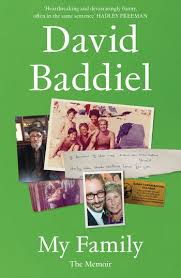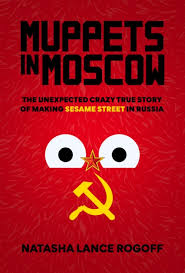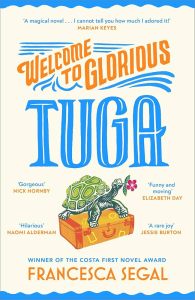The Bee Sting by Paul Murray was shortlisted for the Booker Prize last year and is even more impressive than his second novel Skippy Dies which I read last year. It is a portrait of the Barnes family who live in a small Irish town and have fallen on hard times following the financial crash in 2008. Dickie Barnes runs a car dealership which he inherited from his father Maurice. His marriage to town beauty Imelda is also in trouble. Their teenage daughter Cass is aiming to go to Trinity College Dublin and their 12-year-old son PJ is obsessed with video games.
As demonstrated in ‘Skippy Dies’, Murray is excellent at writing accurate teenage dialogue, although I was a bit less convinced by the absence of punctuation in Imelda’s section, which supposedly reflects her desperation and how her mind works. ‘The Bee Sting’ is less comic than ‘Skippy Dies’ and much more about anxiety regarding both the past and the future. The lengthy flashbacks eventually reveal that it is the events, decisions and near misses in Dickie and Imelda’s past which have really shaped the family’s current circumstances, leading to an unsettling but fitting conclusion. ‘The Bee Sting’ is an ambitious novel with satisfying character development.

Baddiel seamlessly discusses painful and traumatic subjects alongside patently ridiculous ones without trivialising any of them. The most remarkable thing about ‘My Family’ is how Baddiel celebrates his parents’ uniqueness and humanity, despite recognising how emotionally damaged they were. Baddiel acknowledges that his relentless pursuit of being truthful and spending a lot of time in therapy might be why his portrayal of his parents is a lot more affectionate and non-judgemental than might be expected. There are dozens of photographs which aid a lot of visual comedy particularly where golf is concerned, so I don’t think ‘My Family’ would be quite as effective as an audiobook, but it is an outstanding memoir which is impeccably balanced between empathy and humour.
 Muppets in Moscow by Natasha Lance Rogoff describes how she was recruited by an American television network to bring Sesame Street to Russia shortly after the collapse of the Soviet Union in the 1990s. There were numerous barriers to getting Ulitsa Sezam off the ground, including raids on the production offices by Russian soldiers, the assassinations of key supporters and an unstable currency. Sesame Street has been developed for local audiences all over the world, but the Russian version had to adapt to a lot of cultural sensitivities, such as depictions of children selling lemonade, the colours of the puppets and the architecture of the sets. Eventually, the creative team designed a puppet called Zeliboba which became a much loved character. The show was cancelled in 2010 and the same studio is now used to produce pro-Kremlin propaganda. I think the book includes too much background about the author’s personal life, but the Muppets add an appealing quirkiness to what is a fascinating but otherwise pretty bleak story about the bureaucracy of post-communist Russia.
Muppets in Moscow by Natasha Lance Rogoff describes how she was recruited by an American television network to bring Sesame Street to Russia shortly after the collapse of the Soviet Union in the 1990s. There were numerous barriers to getting Ulitsa Sezam off the ground, including raids on the production offices by Russian soldiers, the assassinations of key supporters and an unstable currency. Sesame Street has been developed for local audiences all over the world, but the Russian version had to adapt to a lot of cultural sensitivities, such as depictions of children selling lemonade, the colours of the puppets and the architecture of the sets. Eventually, the creative team designed a puppet called Zeliboba which became a much loved character. The show was cancelled in 2010 and the same studio is now used to produce pro-Kremlin propaganda. I think the book includes too much background about the author’s personal life, but the Muppets add an appealing quirkiness to what is a fascinating but otherwise pretty bleak story about the bureaucracy of post-communist Russia.
 Welcome to Glorious Tuga by Francesca Segal is set on the fictional tropical island of Tuga de Oro. London-based vet Charlotte Walker is relocating to the remote South Atlantic outpost, partly to study endangered tortoises and partly to unravel the mystery of a suspected family connection with the island. She adapts to a different pace of life, getting to know various local characters in the community. Some of these subplots are not very fleshed out, but as this is the first book in a trilogy, there is potential for them to become more developed in the other volumes. ‘Welcome to Glorious Tuga’ is a gentle piece of warm and sunny escapism, and it comes across as a novel which was a lot of fun for Segal to write during lockdown. Many thanks to Random House UK for sending me a review copy via NetGalley.
Welcome to Glorious Tuga by Francesca Segal is set on the fictional tropical island of Tuga de Oro. London-based vet Charlotte Walker is relocating to the remote South Atlantic outpost, partly to study endangered tortoises and partly to unravel the mystery of a suspected family connection with the island. She adapts to a different pace of life, getting to know various local characters in the community. Some of these subplots are not very fleshed out, but as this is the first book in a trilogy, there is potential for them to become more developed in the other volumes. ‘Welcome to Glorious Tuga’ is a gentle piece of warm and sunny escapism, and it comes across as a novel which was a lot of fun for Segal to write during lockdown. Many thanks to Random House UK for sending me a review copy via NetGalley.
Filed under Books






